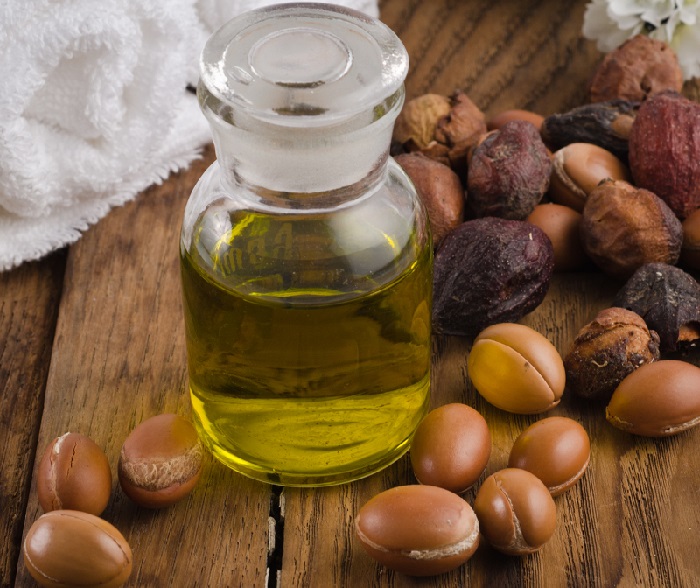Have you ever used vegetable oil for damaged hair? Know that the oils extracted from the seeds or pulp of the fruits can be powerful natural substitutes for conventional hair treatments.
Most of these benefits occur due to the composition of these materials, as they are usually the basis of fatty acids, lipids and various types of vitamins.
All of them are important components in the structure of the wires. They are also essential to keep your locks healthy, even with everyday aggressions.
In this post, you will see the eight best vegetable oils to use on your locks and what their benefits are to keep your hair healthy and beautiful. In addition to discovering how to use them and how to choose the ideal one for your hair type.
Table of Contents
Benefits of vegetable oils for hair

Vegetable oils are gaining more and more prominence because of their benefits for hair treatment. Especially with the growth of no and low poo trends , techniques that abolish the use of petroleum derivatives in the treatment of threads.
The benefits of using this material for hair treatment are numerous. The main ones are the humectant and conditioning effects present in most oils, which help to give shine and strength to the threads.
Each type of oil, however, has different properties and serves specific functions when used on hair. See which are the 8 best oils to use on your hair and what each one of them is for.
1. Coconut oil
One of the darlings not only for hair treatments, but also in food, is coconut oil. This type of oil is extracted from the pulp of the fruit and has 65% of its composition formed by fatty acids.
These, as already mentioned, are essential parts of the structure of hair strands. In addition, coconut oil is completely made up of lipids and helps to prevent hair oxidation . This helps to prevent damage caused by the sun, wind and chemicals such as tinctures and straightening.
Another benefit of it is that the oil is very thin, so it is quickly absorbed by the hair fiber. For this reason, it is highly recommended for treating very dry and brittle hair.
This benefit is mainly due to the fact that the oil extracted from the coconut pulp manages to form a kind of protective barrier around the hair strands . Not only does this reduce moisture loss to the environment, it also prevents damage and reduces frizz .
Coconut oil can be used in three different ways. The first of them is pure, in the form of humectation. In this case, apply the product to the entire strand, from the root and let the hair absorb it. The ideal is to let it act for a few hours or even overnight. To rinse, just apply shampoo to dry hair and only then wet.
The second option for use is with your favorite treatment cream. To do this, just mix the two products well and apply directly to the hair. Finally, coconut oil also works as a finisher.
When applied in small amounts and only on the ends of the hair, it serves to keep the strands aligned and frizz-free for longer.
2. Macadamia oil
Perfect for frizzy and curly hair, macadamia oil is widely used by the cosmetic industry. Mainly because of its high nutritional value, which penetrates the wires and leaves the locks healthy from the inside out.
Among the main components of this oil are: the highest concentration of fatty acids among all nuts, several minerals and vitamins such as C , E, and B complex.
On top of that he has antioxidant action . In this way, it penetrates the inside of the thread and prevents not only aging, but also damage caused by external influences.
All of this makes macadamia oil considered one of the best for hair health. Because it provides hydration, softness, control of volume and frizz. In addition, it works by promoting day-to-day damage recovery and helping to define curls.
This oil can be used as a moisturizer, applying from the root of the thread and allowing it to be absorbed. Or even mixing with treatment creams of your choice.
3. Flaxseed oil
Flaxseed is one of the most used oilseeds in the world, especially due to its nutritional value. However, its residues are also used in the manufacture of dyes and in the manufacture of fabrics.
Regarding its composition, flaxseed vegetable oil is formed mainly by lipids, including a large amount of fatty acids, proteins and fibers. And that all makes it hydrating and fortifying.
When applied directly to the hair, it acts by helping to supply the nutrients lost with chemical procedures, adding shine and reducing frizz.
Flaxseed oil can be used in moistening, which serves to deeply nourish the hair or as a natural finisher. To do this, just apply it directly to the strands, always from the middle to the ends or put a few drops in the combing cream.
However, it is worth mentioning that this oil has a thicker texture than the others on the list, as well as a very strong color and aroma. Therefore, if you are bothered by the smell, it is better to use it before washing.
4. Argan oil

Argan oil is already a guaranteed figure when it comes to vegetable oils, and is also present in several industrialized treatment creams. It is extracted from the argan tree, which grows mainly in the Moroccan region, but which has become popular all over the world.
Part of this popularity is due to the fact that it brings many benefits to hair. For example, this natural ingredient prevents hair loss, dryness, and damage caused by sun, wind, and blow-drying.
Because it is composed of fatty acids and vitamin E, argan acts by deeply nourishing the locks. Another benefit of this type of oil is its antioxidant action, preventing premature aging and deterioration of hair fibers.
In addition to being beneficial for hair, argan oil is quite versatile. Therefore, it can be used for moisturizing, mixed with treatment creams and as a finishing oil to leave the ends in line.
It can also be applied throughout the hair before entering the pool or the sea. Thus, it forms a protective layer and protects hair from damage caused by external agents.
5. Sunflower oil
Sunflower oil is widely used in food, but it also brings many benefits when used directly on the hair. Because it has a light texture, it is perfect for those with oily hair. It is also more suitable for those who have never used vegetable oils and are afraid of using more full-bodied products.
In relation to the composition, sunflower oil has 65% fatty acids, in addition to vitamins C, E and K. This makes it act against the dryness of the strands and does not leave the hair with a heavy or oily appearance .
This oil can be used for wetting. Because it is light and thin, it is quickly absorbed by the hair and ensures nutrition and softness. For those who don’t need an intensive treatment, it can be mixed with the treatment cream or daily comb.
Finally, sunflower oil is also a great finisher and can replace silicone-based ones.
6. Olive oil
Olive oil is a culinary ingredient that can be used on hair. This oil is considered one of the most important and ancient in the world and brings many benefits to the health of the hair. All this due to its composition rich in fatty acids.
In addition, it has vitamins E, A and K in its composition, as well as amino acids and minerals important for maintaining the structure of the hair.
All of this allows the oil to act by protecting the strands against external aggressions, preventing premature aging and moisturizing and aligning them. Even with the use of chemical treatments and heat sources.
Another benefit that makes olive oil so popular is its calming ability. This causes it to reduce irritations and improve hair growth, and can be applied smoothly at the root of the strands.
As it has a very characteristic smell, the best way to use olive oil in hair treatments is in wetting. To do this, just apply it to the entire length of the hair, including the root, and let it act for a few hours.
After this procedure, wash and finish as usual. There is no need to worry about the smell, because it completely disappears after washing.
7. Jojoba oil
Jojoba is an evergreen shrub native to North and South America. From its seed a liquid wax is extracted which forms 97% of the composition of the so-called jojoba oil.
Composed mainly of liquid wax, fatty acids and vitamins A, E and some of the B complex, jojoba oil helps to reduce oiliness, treat dandruff and protect hair against damage.
Oil extracted from jojoba helps keep hair hydrated, reduces breakage, controls frizz and provides strength, elasticity and softness. He is also a powerful antioxidant, preventing premature aging of highlights.
Also, it is considered a stimulant. In this way, when applied directly to the scalp, it helps in hair growth.
Best of all, jojoba oil is quite versatile. It can then be used in the moisturizing step, mixed with treatment creams or as a finisher.
8. Avocado oil

The last oil on the list is avocado oil , which is extracted from the pulp of this fruit and is a bomb of nutrition for the hair. Because it is rich in vitamins A, B and E, in addition to proteins and fatty acids, this oil serves as a conditioner. For this reason, it acts in the regeneration of porous, dry and brittle hair.
This serves to make the strands softer and frizz-free throughout the day. Vitamin E also acts directly to protect against damage caused by chemical treatments, as well as to prevent dryness and breakage caused by brushing.
In addition, it has an antioxidant action, helping to prevent the aging of the hair fiber. It still acts by preventing and treating dandruff and other problems that appear at the root.
Like most of the oils on this list, avocado oil can be used as a moisturizer, mixed with traditional treatment creams, or pure as a finisher. This last form of use is perfect for curly or curly hair, especially since they need a higher dose of hydration.
How to choose vegetable oils?
First of all, you need to know that all vegetable oil for hair needs to be extra virgin. That is, they must be extracted cold and without the use of any type of solvent. This makes them purer and have greater nutritional value.
Unlike refined oils, which are heated and undergo various chemical processes. All with the aim that they yield a greater amount, thus resulting in a nutritionally poor oil that does not bring any benefit to the health of the threads.
Another point to be taken into account when choosing a type of vegetable oil is the desired result. That’s because, there is a specific oil for each purpose, such as preventing dryness, for growth or protection of wires.
Just to exemplify, very dry or brittle hair needs more bodied oils. Therefore, the ideal is to use avocado, olive or linseed. Those who have locks with a finer structure or suffer from oiliness and dandruff should use jojoba, olive or sunflower oils.
Coconut oil, in turn, serves for all types of threads. Another tip is that heavier oils are better for frizzy or curly hair.
Precautions to be taken when using.
As it is a natural product, everyone can use vegetable oils on their hair. However, it is important to be careful when choosing extra virgin products.
It is also necessary to completely remove the oil after application, especially when wetting is performed. That’s because, leaving oils in your hair for too long can result in heavy, oily strands.
Another attention is with possible allergies. Therefore, always test before use and at any sign of irritation, suspend the treatment and seek a specialized doctor.
My name is Ellie Lauderdale, MD and I am USA based professional Nutritionist .
I am a Registered Dietitian Nutritionist and board certified specialist in sports dietetics who is trained in integrative medicine. I have worked with hundreds of clients, from those suffering with chronic disease to professional and olympian athletes. My goal is to help optimize you from the inside so that you can feel, perform, and look your best on the outside.


